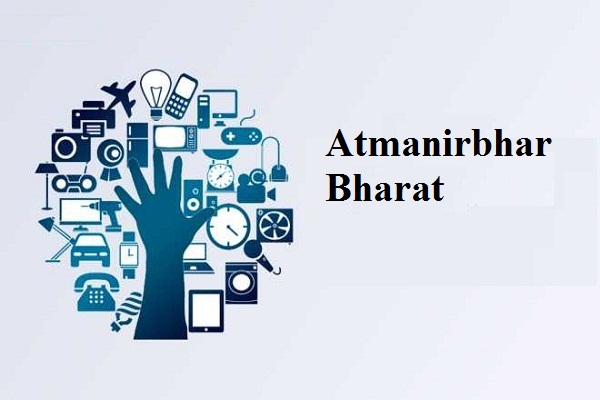
The 10th edition of Elets Healthcare Leaders Forum (HLF) assembled a revered set of panellists to discuss how India can become ‘Atmanirbhar’ or self-reliant in the healthcare sector. eHEALTH was the co-organiser of HLF virtual.
In a Live discussion, Dr KM Cherian, Cardiac Surgeon at Frontier Lifeline Hospital; Dr K Hari Prasad, MD, President for Hospital Division at Apollo Enterprise Ltd; Dr Harish Pillai, CEO, Aster India, Aster DM Healthcare; Rupak Barua, Director & Group CEO, AMRI Hospital; Vivek Tiwari, Founder & CEO, Medikabazaar; Jatin Mahajan, MD, J Mitra & Company came together to share their thoughts on India’s path to self-sufficiency. The panel discussion was moderated by Dr Rana Mehta, Healthcare Leader at PwC.

Dr KM Cherian, Cardiac Surgeon at Frontier Lifeline Hospital stressed the need for focusing on medical research and swift implementation of government policies on the ground to be able to take quality healthcare services to the country’s vast population. He also underscored the need for a robust and encouraging healthcare ecosystem in the country for deriving job satisfaction by medical professionals.
Dr K Hari Prasad, MD, President for Hospital Division at Apollo Enterprise Ltd said that the pandemic has
 demonstrated India’s capability of rising to the situation in a short period. “The country did not have enough intensive care beds, but it showed that these beds could be created overnight in large numbers when required.” He also observed: “The pandemic has thrown up a great opportunity for the healthcare sector, be it pharma, manufacturing or the tech industry. We have a choice to go either the US way or China way. But, I think that India has the capability of getting the sale of China at a cost that is much lower than what the US gives us. We need to create that hybrid, which is cost-effective and still scalable. We are in an optimal position to do that.”
demonstrated India’s capability of rising to the situation in a short period. “The country did not have enough intensive care beds, but it showed that these beds could be created overnight in large numbers when required.” He also observed: “The pandemic has thrown up a great opportunity for the healthcare sector, be it pharma, manufacturing or the tech industry. We have a choice to go either the US way or China way. But, I think that India has the capability of getting the sale of China at a cost that is much lower than what the US gives us. We need to create that hybrid, which is cost-effective and still scalable. We are in an optimal position to do that.”

Dr Harish Pillai, CEO, Aster India, Aster DM Healthcare noted that the country has witnessed “dramatic” changes in policy over the last five years. “I admire the government’s effort to put a great focus on cleanliness and public hygiene in the form of ‘Swachh Bharat’ mission. The government’s approach of providing free cooking gas to the rural masses was very interesting in terms of reducing the burden of chronic obstructive pulmonary disease to a large segment of the population that was using the traditional firewood for their livelihood. Exploring the introduction of nutritious breakfast on the menu for school children is also admirable. The ‘Ayushman Bharat Pradhan Mantri Jan Arogya Yojana’ that aims to provide free access to healthcare for 50 crore people is a pivotal event in the country’s healthcare history. The policy reformation in aspects of clinical governance will also play a key role in increasing the funnel and improving the supply chain of healthcare professionals.”
Rupak Barua, Director & Group CEO, AMRI Hospital, said, while pursuing ‘Atmanirbharta’ or self reliance in the healthcare sector, the country should explore possibilities in reducing the cos incurred for offering quality care to patients. “India is still importing around 60-70% of raw materials from China that offers a slew of benefits in electricity supply and statutory compliance to foreign raw-material producing companies. Our nation should draw up policies that attract these companies to set up their base in India. This will make our quality healthcare affordable to people. Besides, we should augment our domestic manufacturing to bring out medical equipment and consumables in a direction to make our healthcare affordable.”
Vivek Tiwari, Founder & CEO, Medikabazaar said, “Seventy percent of our population lives in rural India and for them, the first point of healthcare delivery at the first point of medical care starts with the chemist shop nearby. They would go to chemist shops asking for medicines and not visit hospitals because of fear of the cost as they think going to the hospital is a burdensome affair. This is due to the lack of previous governments’ initiative to improve medical insurance access in the country. But, medical insurance s now largely a part of this year’s Budget that incentivizes penetration of medical insurance in the country.” He added: “Our population has been primarily been dependent on private healthcare because the public facilities were in a dilapidated state. Today, we are thinking of bringing the healthcare budget to 2.5% of our GDP. This step needed to be taken a decade or a two ago.”
Jatin Mahajan, MD, J Mitra & Company remarked that the pandemic brought numerous challenges such as demand for PPE kits, diagnostic test kits, among others. “Most manufacturers were able to build capacities from zero in a short period. Today, most of them are in a position to export and earn foreign exchange for the nation. Our country should not be depended on foreign companies as importing products could encounter the problem of foreign exchange fluctuations that ultimately burdens the common man. Importing products such as diagnostic test kits may also lead to receiving unreliable products that we have noticed during the pandemic.”
Be a part of Elets Collaborative Initiatives. Join Us for Upcoming Events and explore business opportunities. Like us on Facebook , connect with us on LinkedIn and follow us on Twitter , Instagram.












